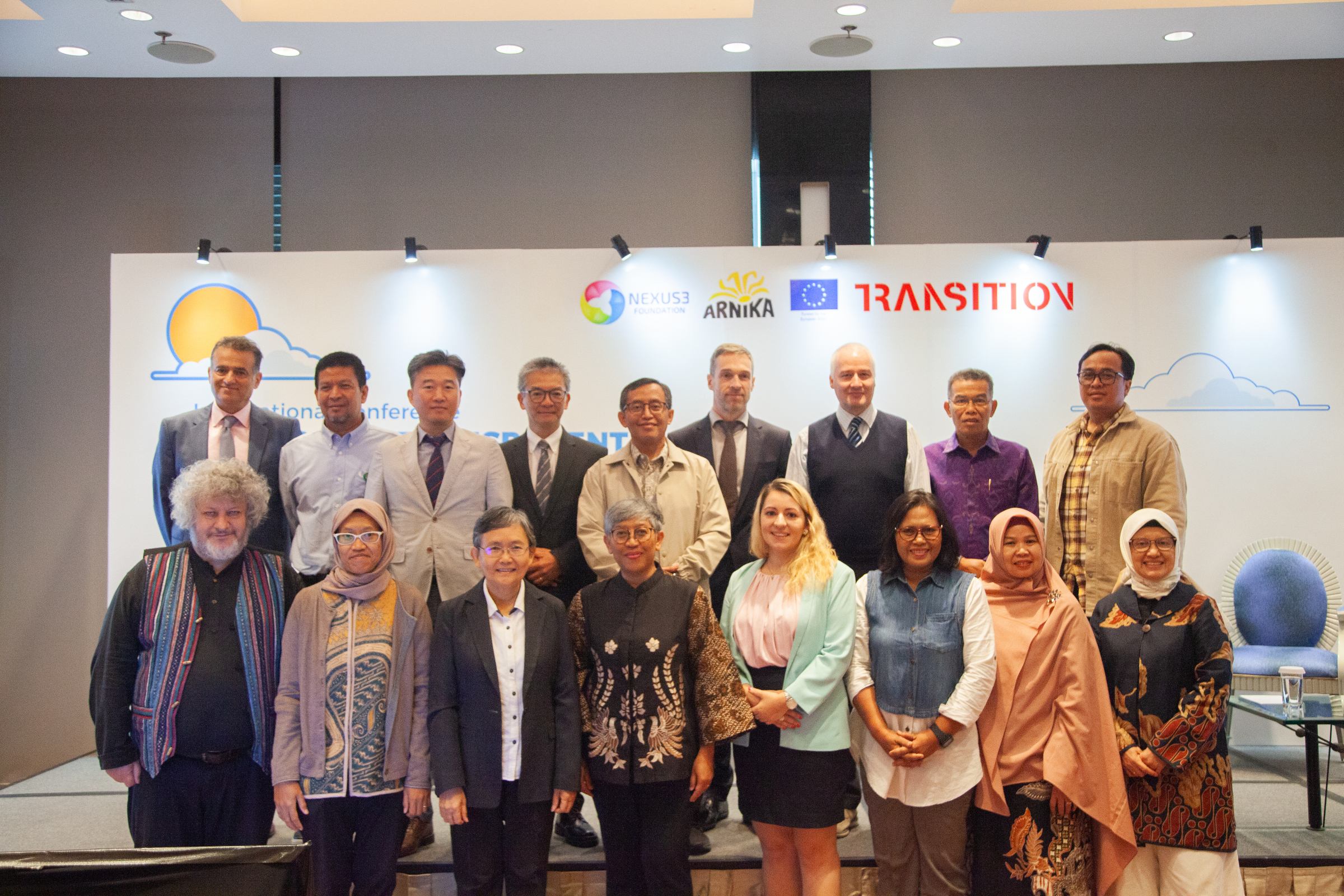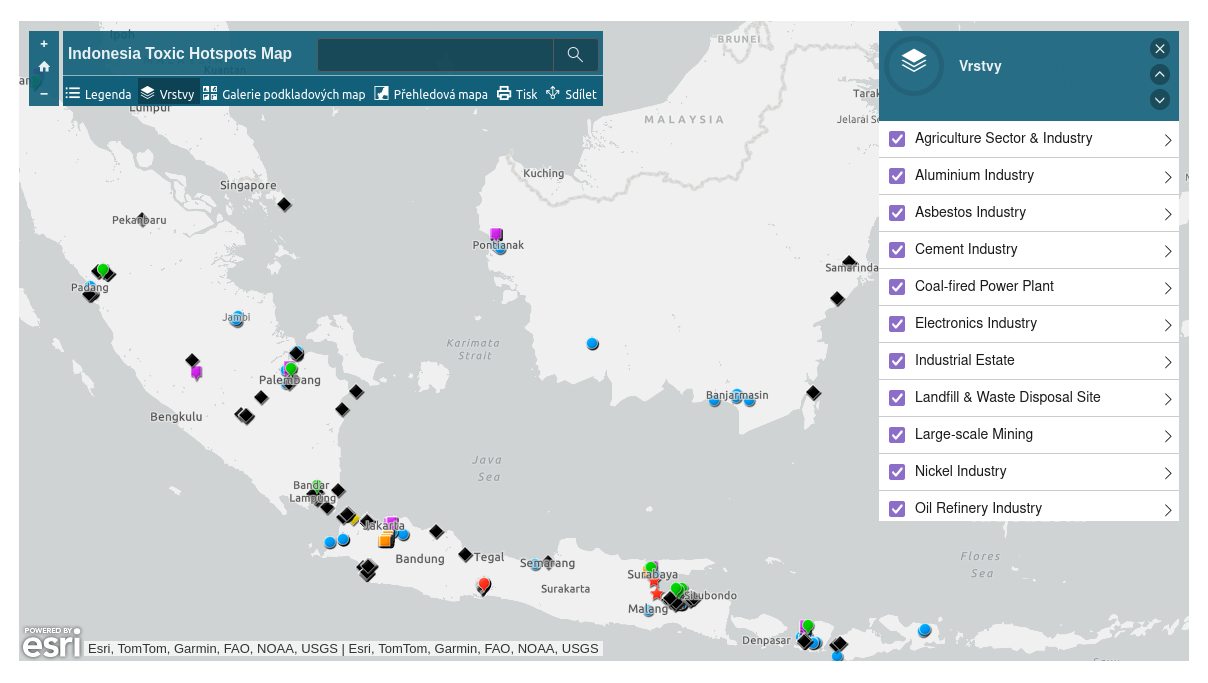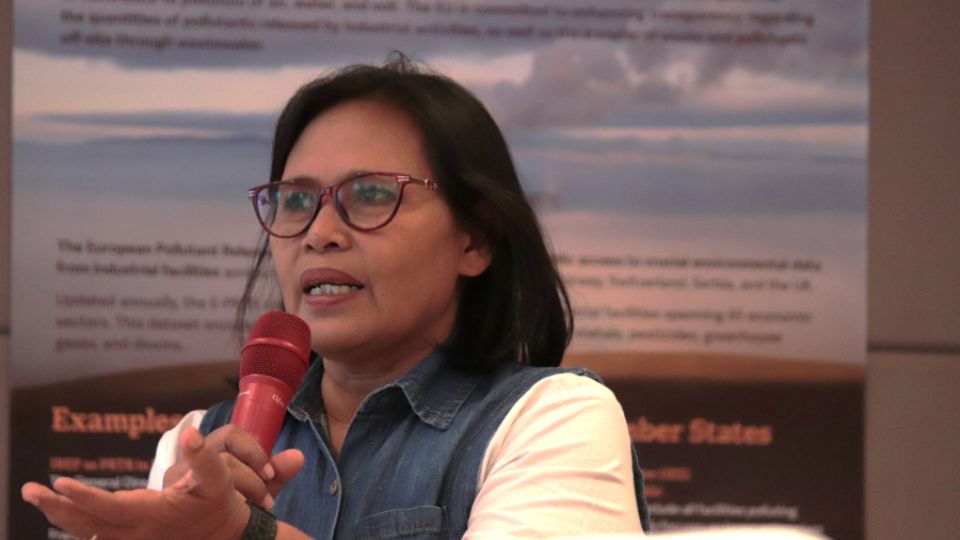JAKARTA – An international conference held on 4-5 June by the non-governmental organisations Nexus3 (Indonesia) and Arnika (the Czech Republic) presented the benefits and functioning of Pollutant Release and Transfer Registers (PRTRs). Such public databases of industrial pollution are helping many countries around the world to analyse a burden of toxic substances and effectively protect their populations.
Indonesia continues to face widespread air pollution, especially in major cities. In and around the capital of Jakarta alone, air pollution by minor particulate matter is estimated to reduce life expectancy of the inhabitants by 2.5 years, contribute to thousands of premature deaths each year and is exacerbating a range of health problems.
In order to take effective action, clear and accessible information is needed for the public, experts and policy makers alike. Introduction of a Pollution Release and Transfer Register (PRTR), a database that provides data on the release of various pollutants, could be helpful in this respect. The conference brought government agencies, policy makers, NGOs, academia, and local communities together to discuss how to create a publicly accessible PRTR platform in Indonesia.
Watch the entire conference on Nexus3 Foundation Facebook: Day 1 and Day 2

“We are pleased to have connected a range of expert and citizen voices who agree that the public has a right to know about the presence of potentially hazardous substances in the environment. The new relationships forged provide a basis for a broad framework that will hopefully lead to a truly functional and transparent PRTR in Indonesia,” comments Senior Advisor of the Nexus3 Foundation Yuyun Ismawati, adding that organisers also presented specific tools and findings that can help with mapping industrial pollution.
Environmentalists also presented a web-based map application of sites across Indonesia particularly affected by pollution. "The content of the app shows that we are certainly not short of pollution hot spots. The public should know about them, and policy makers can draw conclusions from the data and both tackle pollution and systematically collect and provide information about it - in the form of a consistent PRTR," Yuyun concludes.

A representative from the Czech Ministry of the Environment, Eduard Hlavatý presented the benefits and operation of a PRTR register in the Czech Republic - where it has been in place since 2002. “The PRTR allows us to collect and provide comparable data on pollution to water, land and air at a number of sites as well as pollutants in waste transfers. PRTRs can be used to track trends across different sized areas or economic sectors, or to monitor risks, and to ensure citizens' right to information, which is often relevant to their immediate environment,” he emphasized.
Radim Klimša, head of the environmental department at Třinec ironworks - the largest steel producer in the Czech Republic - shared his experience on PRTR from an industry perspective. He noted: “We see PRTR as a tool that can reduce the negative impacts of industrial operations on the environment. Its advantage for our plant is that, thanks to its introduction, we have obtained detailed data on pollutants. We can also compare with other operations within the Czech Republic. It is clear from the measurements that pollutant emissions have decreased significantly with the introduction of PRTR.”
Experiences from other countries were also presented. Penchom Saetang from the Thai environmental organization EARTH talked about the decades-long civil society effort to introduce PRTR in Thailand. Dr. Won Kim also presented a long-standing functionality of the register in South Korea.

Nexus3 Foundation and Arnika have been working together since 2021 in an effort to create a network of NGOs that would monitor pollution in the country and strengthen the role of citizens, namely academia, impacted communities, and civil society in preventing toxic pollution and its impact on human health. The current conference was held as a part of the Transparent Pollution Control in Indonesia project funded by the European Union and co-funded by the Ministry of Foreign Affairs of the Czech Republic within the Transition Promotion Program and the Sigrid Rausing Trust.







